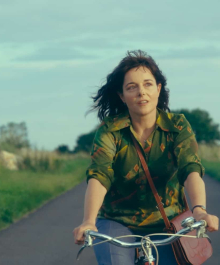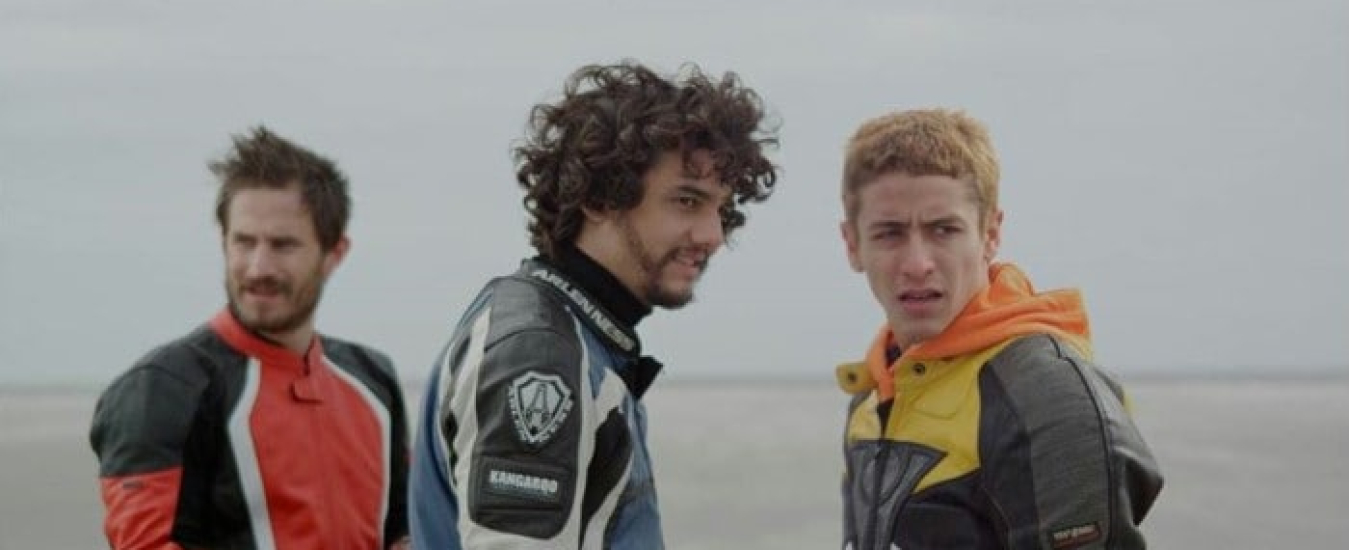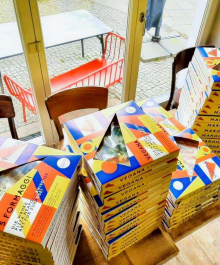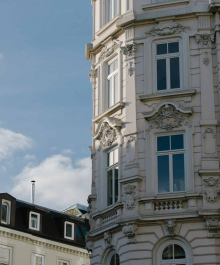

Berlinale goes from the Beach, to the Square, to the Scrapyard.
By Brendan Power . February 12, 2014
The Berlinale continues apace this week, with 5 more movie-packed days left before all the stars move on to greener pastures and the red carpets are rolled up and put into storage for another year. After hunting celebs and hanging around the press conferences for the bigger movies entered in the competition, I decided to change tact a little on Monday and hit up a few films that were unknown to me at the time. I got my fingers (or eyes) burnt with Historia del Meida, which was not really even worth reviewing, because it’s either boring as fuck, or I completely missed the point, but here is a short review of three foreign language films that, for various reasons, caught my attention.
OK I lied about these all being smaller movies, as Praia do Futuro (Beach of the Future) is in fact in the top tier of the Berlinale competition, but I really don’t think it has much chance of making too many waves beyond those we see on screen at the start of the movie. Director Karim Ainouz and his crew have managed to create a nice looking film which unfortunately lacks that bit of oomph to make it memorable for more than a few hours. Beginning in Brazil, we meet central character and lifeguard, Donato, who has just failed to save a drowning victim for the first time. While still processing this traumatic experience, Donato takes it upon himself to inform the victim’s travel buddy Konrad, who was swimming with the victim while they took a beach break from their dirt bike trip down to Patagonia, that his friend has died. Somehow, despite, or perhaps as a result of the grieving melancholy of the moment, both guys have their gaydar switched firmly on in this scene, and from this point embark on a relatively passionate physical relationship. Since Konrad is from Berlin, it’s not long ’til we see the familiar scene of the U1 clunking over the Spree at the Oberbaumbrücke, as Donato follows him home and makes the switch from the beaches of Brazil to the clubs of Berlin. The movie changes pace here, and we see the progression of their relationship as they live their lives in the city together, but Praia doesn’t do enough or say enough from there to be anything more than a handsome looking flick with two handsome leading actors who fall for each other despite the usual complications which must accompany any cinematic quasi-love story. I’ve also decided to bow to convention here by rating these films, and 6/10 for Praia seems fair here, 5 maybe, if you’re not from Berlin or Brazil.
Perhaps the most moving piece of film I’ve seen since The Act of Killing last year, Al Midan aka The Square, is a breath-taking documentary by Egyptian-American director Jehane Noujaim, which follows the events of the Arab Spring via its HQ in Tahrir Square from early 2011, right up to summer 2013. Through the eyes and experiences of the highly admirable and articulate young revolutionary, Ahmed Hassan (above, right), we see on-the-ground and occasionally hidden camera footage of the mass rallies and protests which brought to an end the 30 year dictatorship of Hosni Mubarak, only for the military to replace him, effectively changing nothing. In and around the tents of Tahrir we meet other characters fighting for true regime change such as Magdy, an affable member of the Muslim Brotherhood, a stylish young local folk singer, Ramy Essam, and British-Egyptian actor Khalid Abdalla (above, left), star of the 2007 film The Kite Runner, who has vowed to join the revolution and not leave his country in its most defining period of recent times. The magic of this documentary, which has been rightly nominated for an Oscar, lies in the complex relationship between its subjects, and the high tensions which run throughout as we see footage of peaceful protests, riots, and running street battles between the revolutionaries and their oppressors. The sadness comes from the fact that the ties that united all these people in the beginning are threatened by a string of subsequent events. The clear bond between Ahmed and Magdy is ultimately tested, and a relationship forged in the solidarity of the original protests in Tahrir against Mubarak is changed forever as the Muslim Brotherhood betrays the revolutionaries and engages in political opportunism by making a deal with the military government allowing Mohamed Morsi to become president. If you’re wondering how that went, it’s another case of same shit, different dictator, as the ideals of the revolution, Bread, Freedom, and Social Justice are quickly replaced by manipulated rules of Islamic law. The seemingly Arabic man sitting next to me in the theatre was unable to hold back tears as he winced his way through the more gruesome moments of footage from this violent and tumultuous period in the long history of Egypt, and I don’t mind admitting that I wasn’t far behind him. If you are even remotely interested in figuring out exactly what went on in Egypt during these heated months, this story of the birth, selling-out, and recapturing of a revolution refusing to give in, is certainly one for the ages and sadly isn’t even close to being over. Impassioned and engaging, giving it 8.5/10 almost seems unfair.
In contrast to how much is happening on-screen in The Square, Casse (Scrap Yard) is a very slow paced French documentary focusing on nothing more than conversations and interactions between various individuals at a giant scrapyard for cars, just outside Marseille. Director Nadège Trébal succeeds in putting us at ease by commencing with two immediately likable immigrant mechanics of differing African origin, who casually but intently discuss the concept of cultural integration and assimilation together, as they help each other strip parts from one of the thousands of banged up vehicles in the lot. The conversation moves on to stories of how they reached France, the lucky ones by plane, the not so lucky by boat. As well as various other mechanics, we also meet different groups of French youths, both of immigrant and poorer French backgrounds, scavenging for a part that they can sell to make a few euros. And that’s really all there is to this film on a surface level, yet Trébal manages to make her subjects so at ease, we get the sense that these are the exact conversations which these people would be having anyway, were the cameras not present. A highly satisfying surprise, pick this one if you want to kick back and listen to the surprisingly upbeat and heartwarmingly happy side of the type of folks who will be probably sourcing that cheap spare part next time your car breaks down. 7/10







1 thought on “Berlinale goes from the Beach, to the Square, to the Scrapyard.”
Comments are closed.